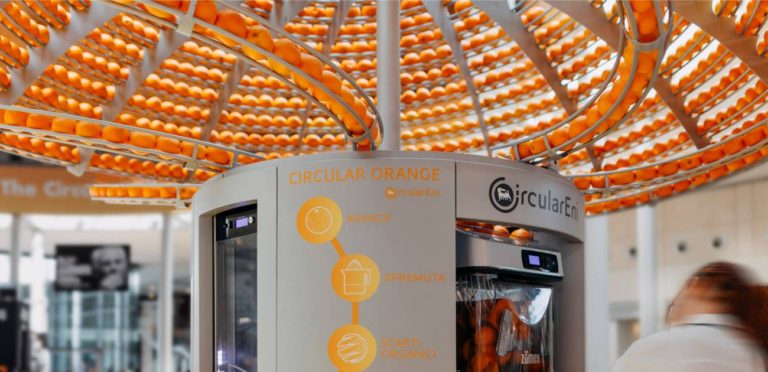In recent years, the search for alternatives to plastic packaging has intensified in many parts of the world. Growing awareness of the environmental damage caused by plastic has driven innovative initiatives to replace this material with more environmentally friendly options. A notable example comes from Asia, where supermarkets have started adopting banana leaves as a sustainable solution for packaging products. This trend not only reflects a change in consumer behavior, but also highlights the crucial role of sustainable packaging in preserving the environment.

Using Banana Leaves: An Eco-Friendly Alternative
The use of banana leaves as sustainable packaging has been gaining traction in countries like Thailand and Vietnam. Supermarkets like Rimping in Chiangmai, Thailand, are leading the way in this innovation, replacing traditional plastic packaging with banana leaves to package vegetables and other produce. This initiative quickly went viral, with major supermarket chains in Vietnam, such as Lotte Mart, following suit and testing the alternative in their stores.
Banana leaves are a natural and sustainable choice for packaging due to their biodegradability, strength and abundance in many regions of Asia. In addition to being a practical solution for plastic exchange, banana leaves contribute significantly to reducing plastic waste, a critical problem in many Asian countries. This initiative is a clear example of how sustainable packaging can be effectively incorporated into daily business practices.
Benefits of Sustainable Packaging with Banana Leaves
The adoption of banana leaves as sustainable packaging brings a series of benefits, both for the environment and for consumers. Among the main benefits are:
- Reducing plastic waste: By replacing plastic with banana leaves, supermarkets help reduce the amount of plastic waste that ends up polluting oceans and landfills.
- Biodegradability: Unlike plastic packaging, which can take hundreds of years to decompose, banana leaves are biodegradable, returning to the natural cycle quickly and without causing harm to the environment.
- Attracting conscious consumers: Many consumers are more likely to buy sustainably packaged products, contributing to more conscious and responsible consumption.
- Preservation of local culture: The use of banana leaves also has a cultural value, especially in Asian countries, where these leaves are traditionally used in various daily practices.
These benefits highlight the importance of investing in sustainable packaging as a fundamental part of environmental preservation and social responsibility strategies.
The Impact of Sustainable Packaging in Asia
Asia, in particular, has faced significant challenges related to plastic waste. Countries like Vietnam are among the world’s biggest plastic polluters, with tons of waste being dumped every day. According to the United Nations Environment Programme (UNEP), Vietnam ranks fourth globally in plastic waste dumped into the oceans. Given this alarming reality, the adoption of sustainable packaging becomes even more crucial.
The move to use banana leaves as a substitute for plastic is a significant step in the right direction. In addition to reducing the amount of plastic in circulation, this practice also serves as a model for other countries looking for viable and environmentally friendly alternatives. plastic exchange by banana leaves is an approach that can be replicated in different contexts, showing that it is possible to align business practices with environmental protection.
Global Trends in Reducing Plastic Use
The change to sustainable packaging The plastic bag movement is not limited to Asia. Globally, there is a growing movement to reduce plastic use, with several countries implementing policies and regulations to limit or ban the use of single-use plastic bags. South Korea, for example, has banned the use of single-use plastic bags in supermarkets, requiring stores to provide reusable alternatives to customers.
In Taiwan, stores have started charging for single-use plastic bags as a way to discourage their use, while China has seen a 66% reduction in plastic bag use since banning ultra-thin bags in 2008. These measures demonstrate a global commitment to plastic exchange for more ecological alternatives, encouraging both consumers and companies to adopt more sustainable practices.
The Future of Sustainable Packaging
The adoption of sustainable packaging is an urgent need to combat the global plastic crisis. Initiatives such as the use of banana leaves in Asian supermarkets are inspiring examples of how innovative solutions can be implemented to reduce environmental impact and promote more responsible consumption.
As more countries and companies embrace eco-friendly alternatives like banana leaves, we are taking important steps toward a more sustainable future. plastic exchange put sustainable packaging It is not just a trend; it is a responsibility that we must all embrace to ensure the preservation of our planet for future generations.
Check out other interesting facts about recycling clicking here.
Learn how to make art by recycling, Click here.



